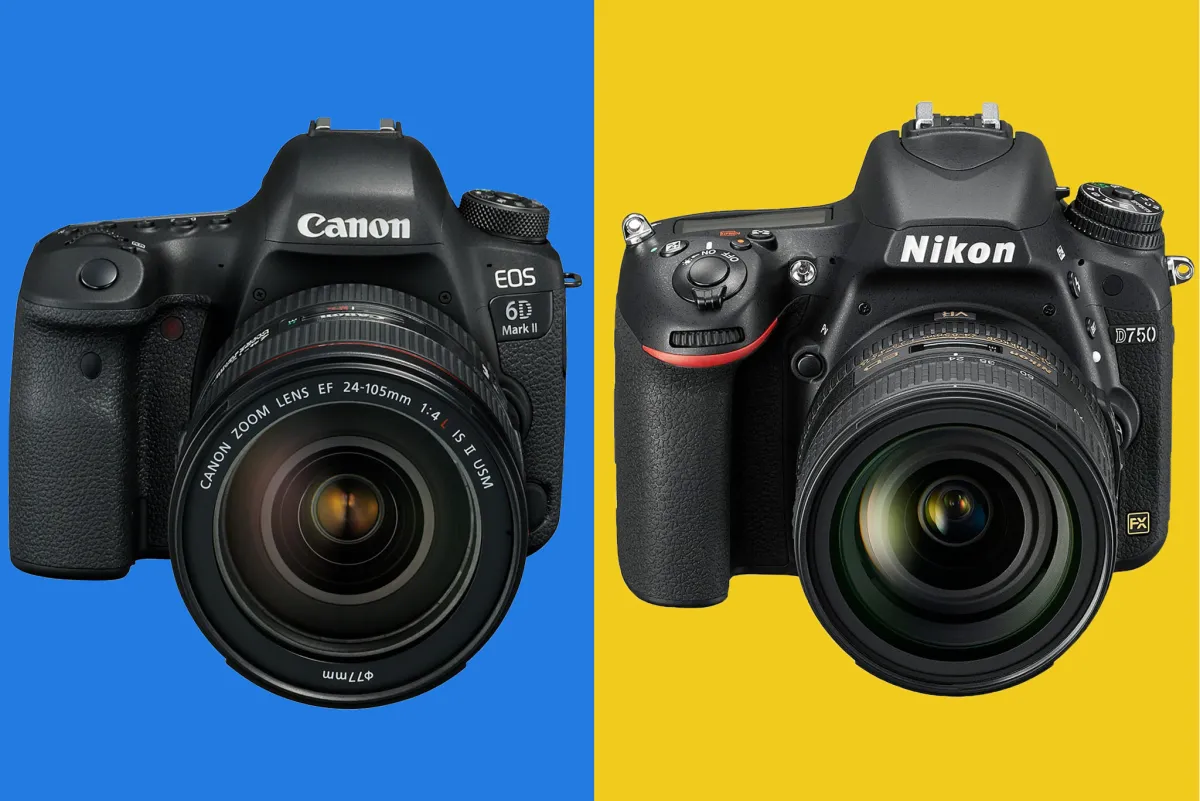
When it comes to the world of photography, two names that stand out among the rest are Nikon and Canon. These camera brands have long been regarded as industry leaders, producing high-quality cameras and lenses that cater to the needs of both professionals and enthusiasts alike. However, choosing between Nikon and Canon can be a daunting task, as both brands offer a wide range of products with their own unique features and capabilities. In this article, we will delve into the key factors that can help you decide which camera brand is right for you.
- Image Quality and Performance:
One of the most critical aspects of a camera is its image quality and overall performance. Both Nikon and Canon have excelled in this aspect, consistently delivering exceptional image quality in their respective camera systems. Nikon cameras are renowned for their superb dynamic range, excellent color reproduction, and low-light performance. On the other hand, Canon cameras are often praised for their accurate colors, high-resolution sensors, and exceptional autofocus systems.
The choice between Nikon and Canon ultimately depends on your specific needs and shooting style. If you prioritize dynamic range and low-light performance, Nikon cameras, such as the Nikon D850 or Z7, might be the better choice for you. Conversely, if you require high-resolution images and advanced autofocus capabilities, Canon cameras like the Canon EOS 5D Mark IV or EOS R5 could be more suitable.
- Lens Selection and System:
Another crucial factor to consider when choosing a camera brand is the lens selection and overall system compatibility. Both Nikon and Canon have extensive lineups of lenses that cater to a wide range of photography genres, including wide-angle, portrait, telephoto, and macro photography.
Nikon utilizes the F-mount system for its DSLRs and the Z-mount system for its mirrorless cameras. With the introduction of the Z-mount system, Nikon has pushed the boundaries of lens design, allowing for faster autofocus, improved image quality, and more compact lenses. While the Z-mount system is relatively new, Nikon has been actively expanding its lens lineup to provide photographers with a versatile range of options.
Canon, on the other hand, uses the EF-mount system for its DSLRs and the RF-mount system for its mirrorless cameras. The RF-mount system, like Nikon’s Z-mount, offers various benefits such as improved image quality and faster autofocus. Canon has also been steadily expanding its RF lens lineup to provide photographers with a comprehensive range of lenses to choose from.
When considering lens selection, it is essential to think about the specific types of photography you plan to pursue. Both Nikon and Canon offer an extensive selection of lenses, but it’s worth researching the availability and suitability of lenses for your preferred genres. Additionally, if you already have a collection of lenses from one brand, it may influence your decision to stick with that brand to ensure compatibility.
- Ergonomics and User Interface:
The ergonomics and user interface of a camera play a significant role in how comfortable and intuitive it is to use. Nikon and Canon have distinct design philosophies that cater to different user preferences.
Nikon cameras are often praised for their robust build quality and comfortable grip, providing photographers with a solid feel in their hands. Nikon’s user interface tends to be straightforward and intuitive, with a well-organized menu system that makes it easy to access and adjust settings.
Canon cameras, on the other hand, are known for their ergonomic design and user-friendly interface. Canon places emphasis on providing a seamless shooting experience, with intuitive controls and a menu system that is accessible and easy to navigate.
Ultimately, the choice between Nikon and Canon in terms of ergonomics and user interface comes down to personal preference. It is advisable to try out cameras from both brands to see which one feels more comfortable in your hands and aligns with your shooting style.
- Video Capabilities:
In recent years, the demand for high-quality video recording capabilities in cameras has grown significantly. Both Nikon and Canon have responded to this demand by offering advanced video features in their camera systems.
Nikon cameras, particularly their mirrorless Z-series cameras, are known for their impressive video capabilities. They offer features like 4K video recording, high frame rates, and advanced autofocus systems that make them suitable for videography. Nikon’s cameras also have excellent image stabilization, which helps in capturing smooth footage.
Canon, on the other hand, has a long-standing reputation for its video prowess. Their DSLRs and mirrorless cameras, such as the Canon EOS R5 and EOS R6, offer impressive video specifications like 8K and 4K video recording, high frame rates, and professional-grade codecs. Canon cameras also provide dual-pixel autofocus, which is highly regarded for its accuracy and reliability in video mode.
If video is a significant part of your photography journey, both Nikon and Canon offer excellent options. Consider the specific video features and requirements that are essential to your videography needs when making a decision.
- Brand Ecosystem and Support:
Lastly, it is worth considering the brand ecosystem and support that Nikon and Canon offer. Both brands have established reputations in the industry and provide extensive support networks for their customers.
Nikon and Canon have a vast community of users and professional photographers, which means you can easily find resources, tutorials, and assistance for their products. They also have authorized service centers worldwide, ensuring that you can get your equipment serviced and repaired if needed.
Additionally, consider the availability of accessories, such as flash units, remote triggers, and other camera peripherals, that are compatible with your chosen brand. Both Nikon and Canon have a wide range of accessories available to complement their camera systems.
Conclusion:
Choosing between Nikon and Canon is a subjective decision that depends on your specific needs, preferences, and shooting style. Both brands offer exceptional image quality, extensive lens lineups, user-friendly interfaces, and reliable support networks. Consider factors like image quality, lens selection, ergonomics, video capabilities, and brand ecosystem when making your decision. Ultimately, it is advisable to test out cameras from both brands, if possible, and choose the one that feels most comfortable in your hands and aligns with your photographic aspirations. Remember, regardless of the brand you choose, the photographer behind the camera plays the most crucial role in capturing stunning images.






